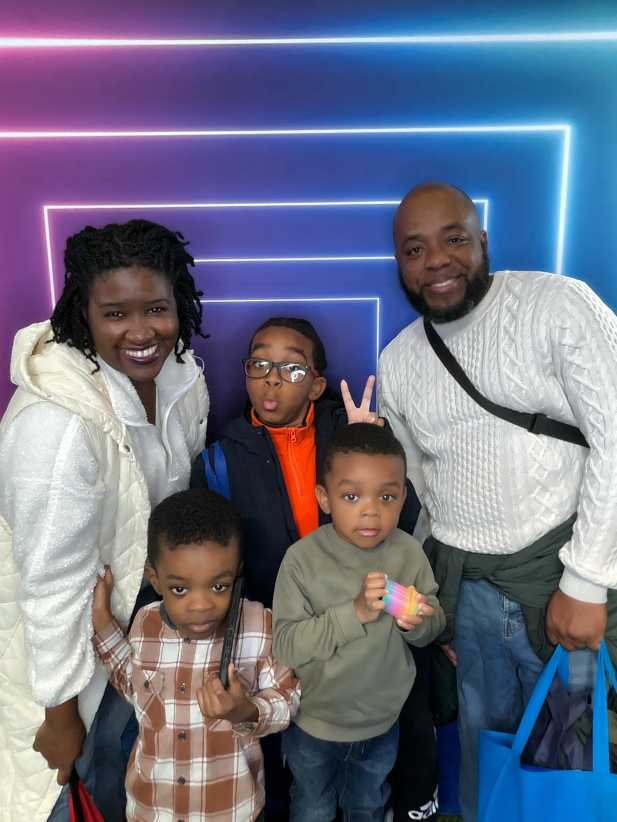As November begins, I always start to think about my early Thanksgivings. Before we could eat, my dad always made a sappy speech about how thankful he was. He would go on and on about us all being together, and healthy, and joined around a full table of food. He then made each person at the table share what they were thankful for. I always giggled at his speeches and rolled my eyes a bit when I had to share, annoyed that I had to wait before I could dig into the mashed potatoes.
As an adult, I look back on those moments, and it warms my heart. What a gift my dad gave me. Talking about the good, pointing out the positive, and occasionally shedding a tear at how good life can be. This is a gift that every child needs and every parent can give — ideally, more than once a year. In order for your children to be grateful, you need to model gratitude.
The exciting news is that gratitude is a behavior! Yup, with just three consistent actions, you can teach your children how to feel grateful.
First, talk about things that you are grateful for every day. Make it part of your casual conversation, just like you would the weather. At least three times a day make a comment, “Wow, I am so grateful we made it to school on time” or “This picture is amazing. Thank you for showing it to me.”
Second, ask your small ones what they are grateful for just once a day. Make this a habit, and ask them at the same time each day. Perhaps you want to start dinner out with this question or it becomes part of your bedtime routine. Doing it at the same time each day helps you remember to ask the question, If your child does not have an answer (as sometimes they say they don’t), simply wait. Let them know you will wait for them to find their answer, because you know they have one.
Third, when your child acts ungrateful (throws a tantrum because you said “no dessert” or carries on when you won’t buy them a new toy), do not get into a long conversation about how good their life is. In this moment, just listen and restate your decision (i.e. “No dessert tonight”). There is no big conversation to remind them of all the sweets they already ate today. This moment, when they do not see how amazing their life is, you simply listen. No argument, no commentary, no convincing. You know that later that day or the next, you will find out what they are grateful for. You know they are learning the skills to be thankful. So in this moment of problem behavior, you can be patient. Now, that is something to be grateful for!
Dr. Marcie Beigel is a behavior specialist based in Brooklyn with more than 20 years of experience. Her book “Love Your Classroom Again” was a bestseller, and her new book, “Love Your Family Again,” is available for purchase at Amazo













